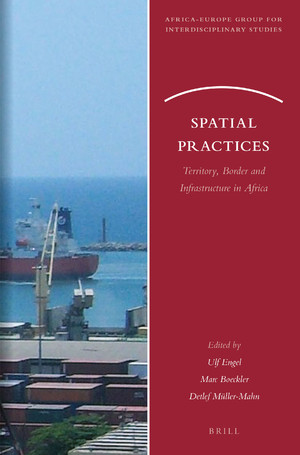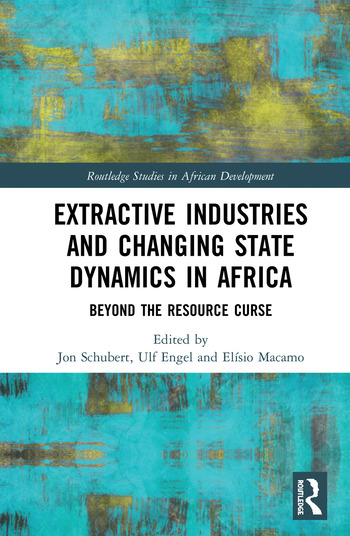New Publications about Spatial Practices and Extractive Industries in Africa
Ulf Engel (SFB 1199 & Leipzig U)
Publication Date
May 2018
Type
Media
Recently, Prof. Dr. Ulf Engel, principal investigator of the SFB project B7 “’New regionalisms’ and Violent Conflicts in Africa: The Politics of the AU and ECOWAS in Mali and Guinea-Bissau”, co-edited two collective volumes dealing with spatial practices and extractive industries in Africa.

The edited collection Spatial Practices: Territory, Border and Infrastructure in Africa presents research findings from the German Research Council’s Priority Programme 1448 “Adaptation and Change in Africa” (2011-2018). At the heart of the volume are important new spatial practices that have emerged after the end of the Cold War in the fields of conflict, climate change, migration and urban development, to name but a few, and their ordering effects with regard to social relations. These findings bear particular relevance for the co-production of territorialities and sovereignties, for borders and migrations, as well as infrastructures and orders.
Publication: Engel, Ulf, Marc Boeckler, and Detlef Müller-Mahn. Spatial Practices: Territory, Border and Infrastructure in Africa (Leiden: Brill, 2018).
Source and further Information: Brill, Link (12 July 2018)

This book uses extractive industry projects in Africa to explore how political authority and the nation-state are reconfigured at the intersection of national political contestations and global, transnational capital. Instead of focusing on technological zones and the new social assemblages at the actual sites of construction or mineral extraction, the authors use extractive industry projects as a topical lens to investigate contemporary processes of state-making at the state–corporation nexus.
Throughout the book, the authors seek to understand how public political actors and private actors of liberal capitalism negotiate and redefine notions and practices of sovereignty by setting legal, regulatory and fiscal standards. Rather than looking at resource governance from a normative perspective, the authors look at how these negotiations are shaped by and reshape the self-conception of various national and transnational actors, and how these jointly redefine the role of the state in managing these processes for the ‘greater good’. Extractive Industries and Changing State Dynamics in Africa will be useful for researchers, upper-level students and policy-makers who are interested in new articulations of state-making and politics in Africa.
Publication: Schubert, Joan, Ulf Engel, and Elísio Macamo. Extractive Industries and Changing State Dynamics in Africa. Beyond the Resource Curse (London: Routledge, 2018).
Source and further Information: Routledge, Link (12 July 2018)
Biographical Note
Prof. Dr. Ulf Engel (SFB 1199 & Institute of African Studies, Leipzig University, Germany)
Trained as a political scientist, Ulf Engel is a professor at the Institute of African Studies in Leipzig. He is the director of the DFG-funded PhD Research Training Programme (GK 1261): “Critical Junctures of Globalization” (2006–2016), the co-director of the DFG Priority Programme (SPP 1448): “Adaptation and Creativity in Africa” (2011–2017), and the director of the Integrated Research Training Group of the DFG Collaborative Research Centre (SFB 1199): “Processes of Spatialization under the Global Condition”. Engel is also a visiting professor at the Institute for Peace and Security Studies at Addis Ababa University (Ethiopia), a professor extraordinary in the Department of Political Science at Stellenbosch University, and a fellow at the Stellenbosch Institute of Advanced Studies (STIAS, South Africa).